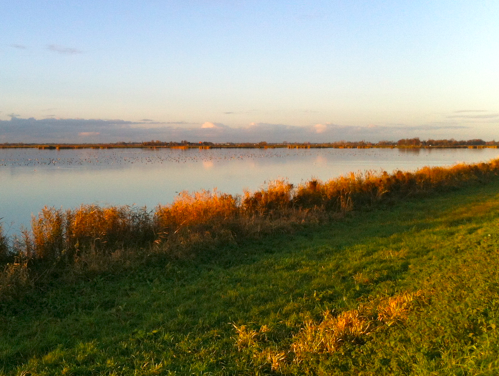Almost everyone can vote in the water board elections on March 20

 You may well have had a voting card drop through your letter box in the past few weeks. It’s not a mistake. Whether you are studying for a master’s degree in Amsterdam or have lived in Zwolle for 25 years, you are probably entitled to vote in water board elections on March 20. Here’s what you need to know.
You may well have had a voting card drop through your letter box in the past few weeks. It’s not a mistake. Whether you are studying for a master’s degree in Amsterdam or have lived in Zwolle for 25 years, you are probably entitled to vote in water board elections on March 20. Here’s what you need to know.
What do the water boards do?
The role of the water boards dates back centuries. Their job is literally to manage water in their territory, a task which includes maintaining the water defences (such as dykes and sluice gates), ensuring that water levels remain constant and that waste water is properly purified – pretty important jobs in other words.
They are not, by the way, in charge of making sure you have fresh drinking water. That job is up to the Netherlands’ 10 drinking water companies.
What is the election about?
There are 21 water boards or water authorities in the Netherlands. Each has its own elected governing board which has 18 to 30 seats, and an executive board. The chairman, or mayor, is know as the dijkgraaf.
Every four years, people living within the water board’s territory elect the members of the ‘residents’ representatives on the governing board. The board also includes representatives from the business, agricultural and environmental sectors, who are not elected.
Who can vote?
Dutch nationals and non-Dutch nationals who are either European or hold a valid residency permit. If you think you are eligible to vote but you have not yet had a voting card, contact your local authority.
Do politics come into it?
Yes. You will find all the usual suspects there – ranging from the VVD to 50Plus – plus local and special interest parties.
What are the big issues?
Climate change – particularly the increase in the number of cloud bursts, which causes flash flooding. More measures also need to be taken to make sure the Netherlands’s cities are rain proof, for example, by developing water storage facilities and encouraging home owners not to tile over their gardens.
Biodiversity – as managers of the country’s water resources, the water boards are also charged with making sure water-dependent wildlife remains diverse and healthy, and with combating the arrival of exotics, such as the muskrat and foreign plant life.
Subsidence caused by the water table becoming lower is a major issue in some areas, particularly after last summer’s drought. Salination is also a drought-related area in some places.
Is there any information in English?
Most of the water boards have information about what they do in English on their websites. Find the name of your local water board here.
HE Delft Institute for Water Education is holding a water board election debate on March 15. Sign up here.
The Northern Times has put together information for people in Groningen.
Who to vote for?
Website Mijn Stem has developed a tool to help you make up your mind who to vote for in each of the 21 water board areas. Six of them are in English. Most of the issues apply nationwide, so you can get a good idea of which party best meets your needs by testing out any one of the six.
Amstel, Gooi en Vecht (Amsterdam, Hilversum)
De Stichtse Rijnlanden (Utrecht)
Delfland (The Hague, Delft)
Rivierenland (Nijmegen)
Vallei en Veluwe (Apeldoorn)
Hunze en Aa’s (Assen)
If you are aware of any more English-related information for the water board elections or are organising an event, please email editor@dutchnews.nl.
Thank you for donating to DutchNews.nl.
We could not provide the Dutch News service, and keep it free of charge, without the generous support of our readers. Your donations allow us to report on issues you tell us matter, and provide you with a summary of the most important Dutch news each day.
Make a donation